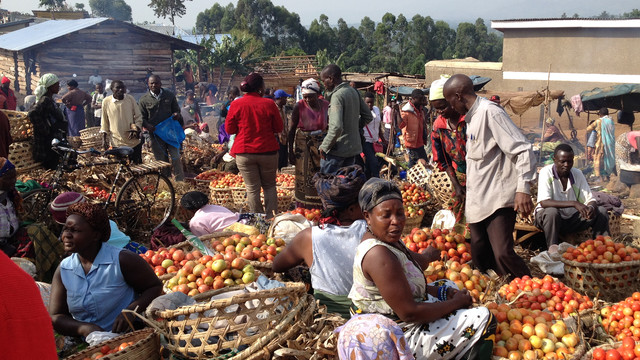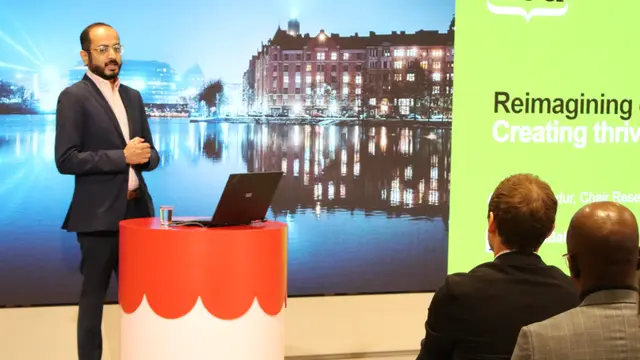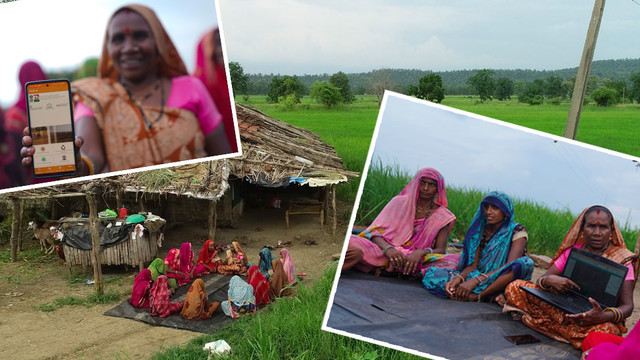Country-led evaluations: revealing the progress of Agenda 2030 – third episode of podcast mini-series
In the third and final episode of podcast mini-series ‘Sustainable Development Goals – Evaluating progress for a brighter future’, Kassem El Saddik, co-chair of EvalSDGs, hosts a discussion on what country-led evaluations can bring to assessing progress towards the SDGs.
With the COVID-19 pandemic diverting everyone’s attention, including national and sub-national governments, progress towards achieving Agenda 2030 has slowed down.
Now there’s a need to refocus policy planning to get back on track, bearing in mind that budgets are stretched in many directions.
Adding value through deepening understanding
Country-led evaluations reflect national ownership of the evaluation process. They are often government-managed yet should remain an open and inclusive process for all national stakeholders, deepening everyone’s understanding of progress achieved against the SDGs and future action needed.
Conducting this kind of evaluation of the SDGs remains a common but differentiated responsibility and requires capacity and resources that many countries still lack. External partners could extend technical support to nurture national capacities, mobilise resources and facilitate the process of conducting the evaluation.
In this final episode on the mini-series 'Sustainable Development Goals: evaluating progress for a brighter future', guests from research, the social enterprise sector and non-government organisations discuss the potential of country-led evaluations, not only for national governments but also for informing initiatives at the global level.
As Ana d’Oliveira says, the findings can be used to measure the strategic progress of Agenda 2030 across many countries, outlining governance arrangements and institutional mechanisms being put in place and revealing how all stakeholder groups are being engaged.
And Dorothy Lucks points out that at the global level, development partners can play an important role, providing resources for evaluations, and contributing to moving forward a common agenda.
Petri Uusikylä tells us about Finland’s current country-led evaluation, describing it as providing ‘state-of-the-art analysis’.
Country-led evaluations must be inclusive
But the issue of inclusion is vitally important. Not only that country-led evaluations consult across a wide range of people and organisations but that they draw information from both national and sub-national levels.
Overlooking local realities risks losing important perspectives, experiences and valuable information about drivers of local action to achieve the SDGs.
And inclusion also means involving evaluators from the country being evaluated – in that way, people speaking different local languages and Indigenous Peoples are more likely to have their views included and will, as a result, be able to use the lessons from the evaluation to make progress on sustainable development.
Country-led evaluations are complex and face challenges: covid, climate change, conflicts and an growing closure of civic space. Countries need to redouble their efforts to put in place policies and practices for achieving Agenda 2030: country-led evaluations can inform that process, identifying gaps and through a participatory and inclusive process, bringing on board partnerships at all levels to strengthen the process.
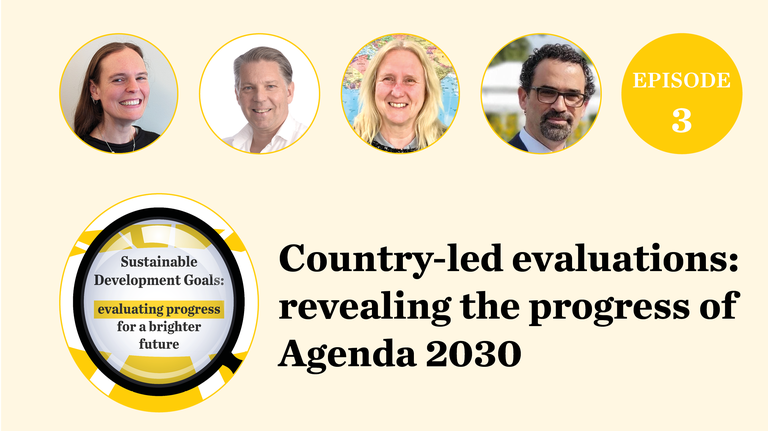
Expert views
The episode 3 participants are:
Ana de Oliveira, policy and research officer at Cooperation Canada, a Canadian network focusing on international cooperation. She has worked in partnership with 12 other organisations from around the world, leading the research and coordination of an independent civil society-led report on the progress of national SDGs implementation.
Dorothy Lucks, executive director of SDF Global Pty Ltd, a social enterprise conducting strategic and evaluative work worldwide. She has over 25 years of experience in strategic sustainable development and evaluation, covering project, programme, institutional and thematic evaluations at national, regional and global levels.
Petri Uusikylä, co-founder and director at evaluation company Frisky & Anjoy and research director at the University of Vaasa (Complexity Research Group). He has over 25 years' experience in public policy-related research, capacity building and evaluation, has been a government adviser on public policy evaluation and EU policy-making, and is a board member of the Finnish Evaluation Society.
Kassem El Saddik, co-chair of EvalSDGs and an independent consultant, specialising in programme and policy evaluation in the public and non-governmental sectors in a development and humanitarian context.
Further reading
- Download the guide 'Evaluation to connect national priorities with the SDGs'
- Listen to the first two episodes of the mini-series: Episode 1: Adaptive evaluation: considering climate risks in theory and practice and Episode 2: Defining and scoping an SDG evaluation – how do you get started?
- Effective evaluation for the Sustainable Development Goals
- EvalSDGs knowledge products
Subscribe
You can subscribe to the podcast on your favourite podcast app as follows:
The podcast is also available on IIED's YouTube channel.
Further listening
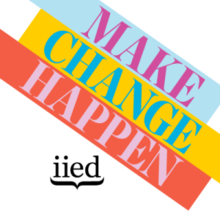
Listen to our Make Change Happen podcast, which provides informal insights into IIED’s work to create positive change and make the complex issues we face more accessible to wider audiences.
 Soundcloud
Soundcloud Stitcher
Stitcher TuneIn
TuneIn Spotify
Spotify